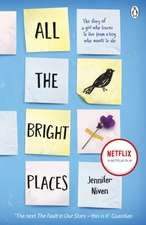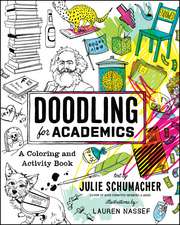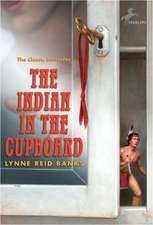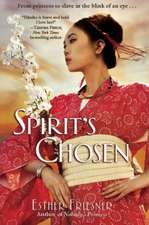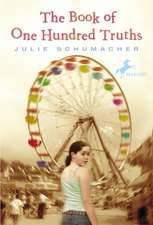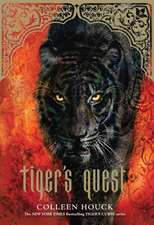The Unbearable Book Club for Unsinkable Girls
Autor Julie Schumacheren Limba Engleză Paperback – 13 mai 2013 – vârsta de la 12 ani
Preț: 70.94 lei
Nou
Puncte Express: 106
Preț estimativ în valută:
13.57€ • 14.14$ • 11.24£
13.57€ • 14.14$ • 11.24£
Carte disponibilă
Livrare economică 14-28 martie
Preluare comenzi: 021 569.72.76
Specificații
ISBN-13: 9780375851278
ISBN-10: 0375851275
Pagini: 240
Dimensiuni: 150 x 211 x 15 mm
Greutate: 0.2 kg
Editura: Ember
ISBN-10: 0375851275
Pagini: 240
Dimensiuni: 150 x 211 x 15 mm
Greutate: 0.2 kg
Editura: Ember
Notă biografică
JULIE SCHUMACHER is the author of several highly acclaimed children's books. She is a professor of English at the University of Minnesota.
Extras
“The Yellow Wallpaper”
1. SETTING: The place where the author puts the characters. It’s like setting a table, except that instead of using plates and silverware, you’re using people.
On our first day of membership in what CeeCee would later call the Unbearable Book Club, I was sitting in a plastic lounge chair at the West New Hope, Delaware, community pool, reading a dog-eared copy of “The Yellow Wallpaper.” According to the thermometer on the lifeguard stand, it was ninety-seven degrees. My hands were sweating so much they left stains on the pages.
CeeCee paused by the empty recliner next to mine. She was wearing a white crocheted bikini and dark sunglasses, and I saw a copy of “The Yellow Wallpaper” sticking out of her polka-dot bag. CeeCee’s thighs didn’t touch at the top, I noticed. We weren’t friends.
“Don’t you think we’re too old for this?” she asked.
I wasn’t sure she was talking to me: I wasn’t the sort of person CeeCee Christiansen usually talked to. The two of us chatting? It was like a dolphin hanging out with a squirrel. “It wasn’t my idea,” I said as a river of sweat worked its way down my spine. “I think our mothers set it up. They were in a yoga class together.”
CeeCee didn’t glance in my direction. She unponytailed her long blond hair and let it fall toward the ground like a satin curtain. “Believe me,” she said. “It wasn’t my mother’s idea. She doesn’t have the imagination.”
“Good to know.” I wiped my hands on my towel.
Twenty feet from the edges of our chairs, across a stretch of cement too hot to stand on, the pool flashed and glittered, a turquoise rectangle full of multicolored bodies leaping in and out of the water like flying fish.
CeeCee was staring at one of the lifeguards, who was staring back at her and twirling his whistle around his finger on a string: three twirls to the right, three to the left. She had apparently finished talking to me, so I picked up my book.
“You’re actually reading it.” She sat down and took the cap off a bottle of sunblock. When I turned toward her she smiled a closed-lipped smile, making me think of an alligator sunning itself on a riverbank.
“That’s the assignment,” I said. “We have to read ‘The Yellow Wallpaper’ and four other books.”
“And learn a list of literary terms and write an essay,” CeeCee said. “This teacher’s insane. No one else assigns that kind of homework during the summer. I don’t care if it is AP.”
I squeegeed the sweat from my eyebrows with an index finger. I didn’t mind doing the reading--whatever I read would be more interesting than my day-to-day life--but I wasn’t looking forward to the essay. Most of the papers I wrote for school came back with suggestions in the margins about how my ideas could be organized. “I can’t find an argument here,” my tenth-grade history teacher had said.
“So you’re not going to read the books?” I asked CeeCee. I didn’t know Ms. Radcliffe yet, but she had a reputation for being stern and precise. I imagined her snapping a steel-edged ruler on my desk.
“It doesn’t matter if you read them.” CeeCee squirted a white ribbon of lotion onto her stomach. “Most of the books we read for school are crap. I usually just read the summary online, or I read the first couple of pages and then skip to the end.” She glanced at my copy of “The Yellow Wallpaper.” “You’re planning to read the whole thing?”
“I think that’s the point of a book,” I said. “You start at the beginning and you read to the end.” I hadn’t learned how to read until the middle of first grade, and I still felt grateful to my teacher, Ms. Hampl, who had knelt by my desk one afternoon and smoothed her finger across the parallel rows of two-dimensional black marks in my book--and as if she had opened a hidden door, I felt the patterned surface break and give way, and the words let me in. I still loved opening a book and feeling like I was physically entering the page, the ordinary world fizzing and blurring around the edges until it disappeared.
“You don’t have to take Advanced Placement,” I pointed out.
“Right. Only the helpless take regular English.” CeeCee squeezed some lotion onto her arms, which were thin and hairless. “AP classes have two kinds of kids in them: the kids who are smart, and the kids who don’t want to spend the year in a room full of losers. Do you have a four-oh?”
“A four-oh grade average? No.” I wasn’t sure what my average was. Teachers often referred to me as a student with “a lot of potential.” This meant they expected me to be smart; but in fact my mind was often packing a mental suitcase and wandering off on its own. I sometimes pictured all the things I had learned during the previous week at school jumping into brightly painted railroad cars and disappearing into the distance on a speeding train.
CeeCee scanned the perimeter of the pool, presumably for more-worthwhile people to talk to. The pickings were slim. “So what’s your deal?” she asked. “I don’t really know you. Who are you supposed to be?”
Who was I supposed to be? I was Adrienne Haus. I was fifteen. I lived in West New Hope with my mother, who had signed me up for a summer book club. Now I was reading--or trying to read--a book at the pool.
1. SETTING: The place where the author puts the characters. It’s like setting a table, except that instead of using plates and silverware, you’re using people.
On our first day of membership in what CeeCee would later call the Unbearable Book Club, I was sitting in a plastic lounge chair at the West New Hope, Delaware, community pool, reading a dog-eared copy of “The Yellow Wallpaper.” According to the thermometer on the lifeguard stand, it was ninety-seven degrees. My hands were sweating so much they left stains on the pages.
CeeCee paused by the empty recliner next to mine. She was wearing a white crocheted bikini and dark sunglasses, and I saw a copy of “The Yellow Wallpaper” sticking out of her polka-dot bag. CeeCee’s thighs didn’t touch at the top, I noticed. We weren’t friends.
“Don’t you think we’re too old for this?” she asked.
I wasn’t sure she was talking to me: I wasn’t the sort of person CeeCee Christiansen usually talked to. The two of us chatting? It was like a dolphin hanging out with a squirrel. “It wasn’t my idea,” I said as a river of sweat worked its way down my spine. “I think our mothers set it up. They were in a yoga class together.”
CeeCee didn’t glance in my direction. She unponytailed her long blond hair and let it fall toward the ground like a satin curtain. “Believe me,” she said. “It wasn’t my mother’s idea. She doesn’t have the imagination.”
“Good to know.” I wiped my hands on my towel.
Twenty feet from the edges of our chairs, across a stretch of cement too hot to stand on, the pool flashed and glittered, a turquoise rectangle full of multicolored bodies leaping in and out of the water like flying fish.
CeeCee was staring at one of the lifeguards, who was staring back at her and twirling his whistle around his finger on a string: three twirls to the right, three to the left. She had apparently finished talking to me, so I picked up my book.
“You’re actually reading it.” She sat down and took the cap off a bottle of sunblock. When I turned toward her she smiled a closed-lipped smile, making me think of an alligator sunning itself on a riverbank.
“That’s the assignment,” I said. “We have to read ‘The Yellow Wallpaper’ and four other books.”
“And learn a list of literary terms and write an essay,” CeeCee said. “This teacher’s insane. No one else assigns that kind of homework during the summer. I don’t care if it is AP.”
I squeegeed the sweat from my eyebrows with an index finger. I didn’t mind doing the reading--whatever I read would be more interesting than my day-to-day life--but I wasn’t looking forward to the essay. Most of the papers I wrote for school came back with suggestions in the margins about how my ideas could be organized. “I can’t find an argument here,” my tenth-grade history teacher had said.
“So you’re not going to read the books?” I asked CeeCee. I didn’t know Ms. Radcliffe yet, but she had a reputation for being stern and precise. I imagined her snapping a steel-edged ruler on my desk.
“It doesn’t matter if you read them.” CeeCee squirted a white ribbon of lotion onto her stomach. “Most of the books we read for school are crap. I usually just read the summary online, or I read the first couple of pages and then skip to the end.” She glanced at my copy of “The Yellow Wallpaper.” “You’re planning to read the whole thing?”
“I think that’s the point of a book,” I said. “You start at the beginning and you read to the end.” I hadn’t learned how to read until the middle of first grade, and I still felt grateful to my teacher, Ms. Hampl, who had knelt by my desk one afternoon and smoothed her finger across the parallel rows of two-dimensional black marks in my book--and as if she had opened a hidden door, I felt the patterned surface break and give way, and the words let me in. I still loved opening a book and feeling like I was physically entering the page, the ordinary world fizzing and blurring around the edges until it disappeared.
“You don’t have to take Advanced Placement,” I pointed out.
“Right. Only the helpless take regular English.” CeeCee squeezed some lotion onto her arms, which were thin and hairless. “AP classes have two kinds of kids in them: the kids who are smart, and the kids who don’t want to spend the year in a room full of losers. Do you have a four-oh?”
“A four-oh grade average? No.” I wasn’t sure what my average was. Teachers often referred to me as a student with “a lot of potential.” This meant they expected me to be smart; but in fact my mind was often packing a mental suitcase and wandering off on its own. I sometimes pictured all the things I had learned during the previous week at school jumping into brightly painted railroad cars and disappearing into the distance on a speeding train.
CeeCee scanned the perimeter of the pool, presumably for more-worthwhile people to talk to. The pickings were slim. “So what’s your deal?” she asked. “I don’t really know you. Who are you supposed to be?”
Who was I supposed to be? I was Adrienne Haus. I was fifteen. I lived in West New Hope with my mother, who had signed me up for a summer book club. Now I was reading--or trying to read--a book at the pool.
Recenzii
Starred Review, Kirkus Reviews, March 1, 2012:
“The characters, especially the four girls, sparkle…. Smart and insightful.”
VOYA, April 2012:
"Required summer reading never seemed so exciting before."The Bulletin of the Center for Children's Books, May 2012:
"Schumacher, author of the compelling Black Box, deftly allows elements of The Yellow Wallpaper, Frankenstein, The House on Mango Street, and The Awakening to infuse Adrienne’s thinking as she immerses herself in them and as her own story unfurls alongside them. The result is a story that explores the way books can and can’t inform lives, as Adrienne’s summer leads to some surprising, even tragic events; that makes this a natural for book-club discussion by reluctant and eager attendants alike."
From the Hardcover edition.
“The characters, especially the four girls, sparkle…. Smart and insightful.”
VOYA, April 2012:
"Required summer reading never seemed so exciting before."The Bulletin of the Center for Children's Books, May 2012:
"Schumacher, author of the compelling Black Box, deftly allows elements of The Yellow Wallpaper, Frankenstein, The House on Mango Street, and The Awakening to infuse Adrienne’s thinking as she immerses herself in them and as her own story unfurls alongside them. The result is a story that explores the way books can and can’t inform lives, as Adrienne’s summer leads to some surprising, even tragic events; that makes this a natural for book-club discussion by reluctant and eager attendants alike."
From the Hardcover edition.

